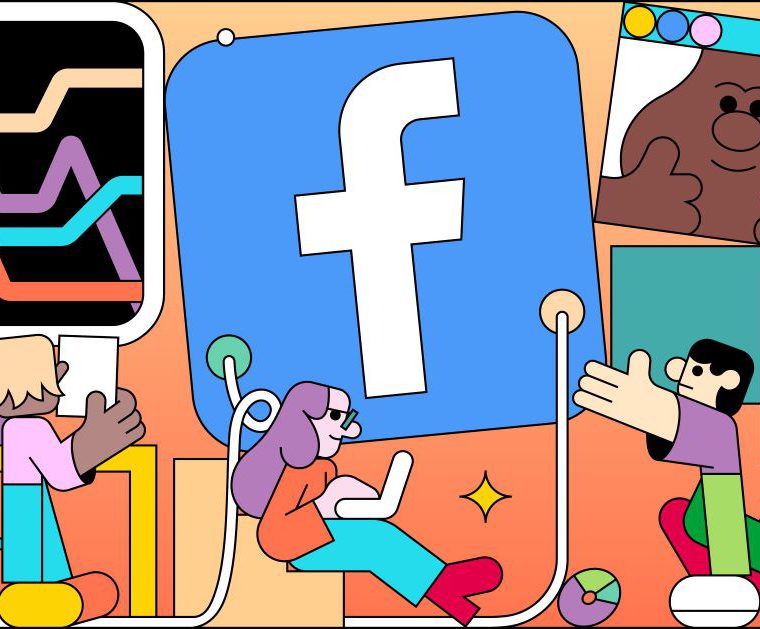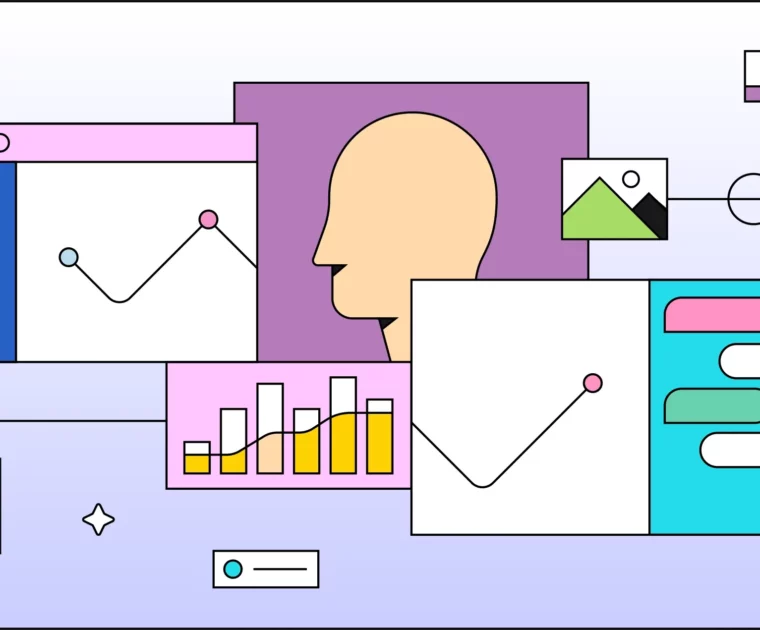A Simple Micro-Influencer Marketing Strategy That’s Actionable and Effective
With summer in full swing, it’s the perfect time to create and launch a summer influencer marketing plan that you can roll into the back-to-school / fall shopping season.
For many consumers, summer is about relaxing a bit and taking time off. That means lounging out in the sun (while simultaneously hiding from the heat), lazing around the pool, heading out for road trips, and making the rounds at festivals. Lots and lots of festivals.
For marketers, this sort of universal downtime provides a unique opportunity to get in front of people who are still pretty busy, but feeling far less mentally congested.
Summer Marketing Opportunities Abound
If you think about it, the 90 or so days that make up summer vacation are packed with holidays, summer traditions, summer tendencies, and warm-weather products that provide ample opportunity for you to give your brand awareness and your sales a boost.
The unofficial start of summer kicks off on Memorial Day, nearly a month before summer actually begins, and unofficially ends on Labor Day, two to three weeks before the official end of summer. Here are the highlights.
OPPORTUNITY: BACK-TO-SCHOOL SHOPPING
When the lazy days of summer finally do arrive, with it comes the second biggest retail event of the year – back-to-school shopping. I know. I know. Don’t mention summer fun and back-to-school shopping in the same cyber-breath. We’re probably all programmed to separate the two in our minds.
Still, by the time Independence Day rolls around, 24 percent of parents have already begun shopping for the new school year. By the end of July, that number will more than double to 57 percent of parents.
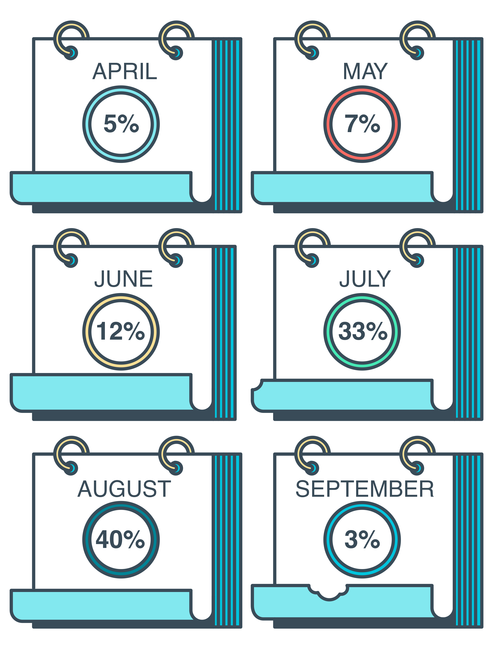
I won’t go too much into the back-to-school numbers because we did that in Parts One and Two of this series (The 2018 Influencer Marketing Guide), and also here and here.
Suffice it to say, with annual back-to-school sales hovering somewhere in the ballpark of $83 billion on everything from pencils and clothes, to gadgets and dorm furniture, there’s probably a slot in there somewhere for your product.
OPPORTUNITIES: SUMMER HOLIDAYS
Memorial Day
- The average consumer spends $486 Memorial Day weekend. (Source: Adweek)
- Memorial Day weekend is a major travel holiday for consumers. Memorial Day travel in 2018 was estimated to be 41.5 million people, despite a 22 percent rise in the price of motor fuel. (Source: AAA)
- Apparel stores, department stores and electronic stores were the top retail destinations for Memorial Day weekend shopping. (Source: Adweek)
- In 2016 travelers spent $12 billion over the long holiday weekend. (Source: Money, Inc.)
Father’s Day
- Father’s Day is a global holiday.
- Father’s Day spending was expected to reach $15.3 billion in the U.S. in 2018. (Source: NRF)
- 3 in 4 Americans celebrate Father’s Day. (Source: Fundivo)
- Millennials tend to spend more on their dads, spending around $188 per person for the holiday. (Source: National Retail Federation)
- Fewer than 15 percent of dads want that tie – or any apparel at all – for Father’s Day.
- For variety and idea inspiration, nearly 40 percent of shoppers will head to the nearest department store for Father’s Day.
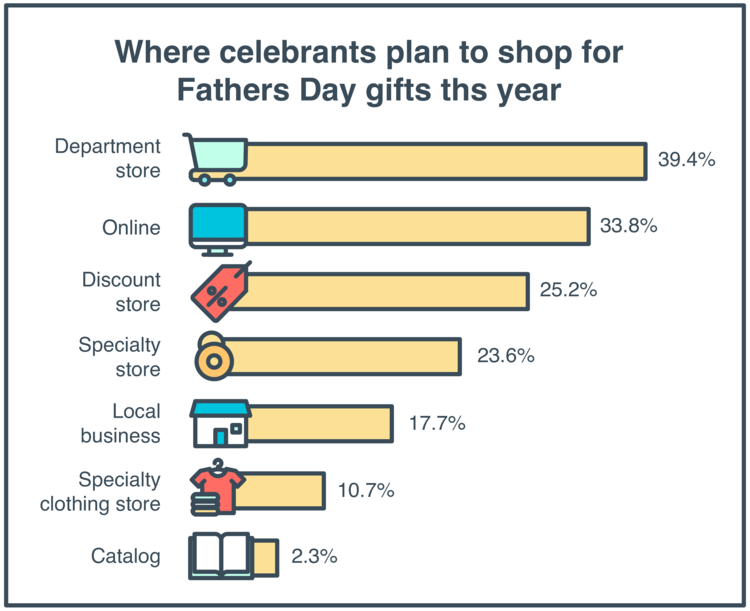
Source: NRF
Independence Day
- Last year’s big, juicy post on Fourth of July stats makes Independence Day a big deal for the more than 200 million Americans who celebrate it. (Source: The Shelf)
- 2017 was a record-breaking year for Fourth of July spending at $7.1 billion. (Source: NRF)
- Most celebrants (about 2 in 3) will be heading to a barbecue to eat on one of the nation’s biggest food holidays. (Source: CNBC)
- Americans will eat 150 million hot dogs for the Fourth. (Source: WalletHub)
- Sweet Baby Ray’s is the big winner when it comes to barbecue sauces, accounting for nearly one-third of all barbecue sauce sales. (Source: Statista)
- Top-selling non-food products include barbecue grills, mosquito repellent, consumer fireworks, American flags, display fireworks and apparel.
Labor Day
- Labor Day is ranked the third most-liked holiday in the U.S., right after Christmas and Memorial Day. In fact, 3 of the top 5 holidays are summer holidays that we talked about in this section. (Source: WalletHub)
- More than 35 million people will hit the roads for Labor Day weekend travel. (Source: ABC News)
- Labor Day spending is a mixed bag. While actual spending on Labor Day festivities totals around $60, the average shopper is going to spend about $100 more that weekend on back-to-school items like school supplies, 28 percent; clothes, 22 percent; and electronics, 18 percent. (Source: McNutt & Partners)
OPPORTUNITY: SUMMER FUN & TRADITIONS
I came across the Fun Summer Activities Checklist from Real Simple listing 50 things people tend to save for the summer months. It was the kind of list that brings back fun memories, served with a side of alarm as you wonder how long it’s been since you were carefree and fun-loving.
Here’s a partial list of 24 activities I thought were particularly summery.
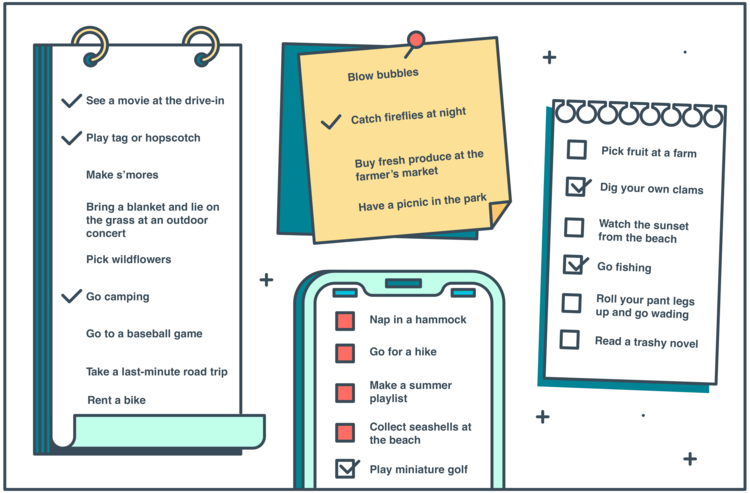
According to the National Recreation and Park Association, many of these activities really are summer favorites across generations:
- 55 percent of those surveyed named having a picnic/barbeque as a favorite activity
- 49 percent said going for a walk or a hike was their favorite thing to do
- 40 percent named a trip to the beach as their favorite summer activity
Other popular summer activities include exploring nature, attending festivals, going to the pool, camping, working out, water activities, and playing sports.
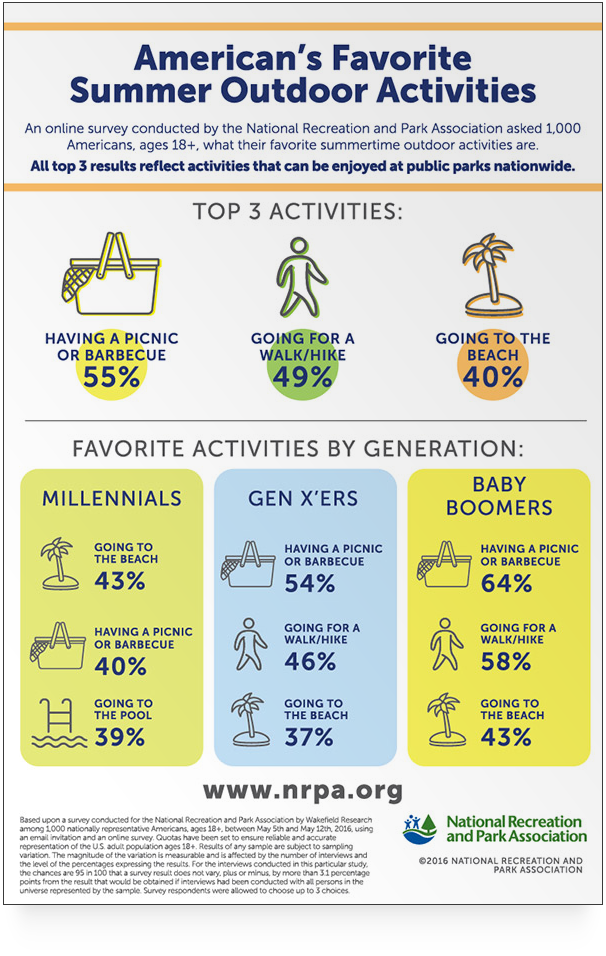
OPPORTUNITY: FILM AND ENTERTAINMENT
The summer blockbuster has become a tradition all over the world. Despite the dip in box office sales last year (what was with that summer lineup??), upping your theatre (and drive-in) attendance during the warmer months is a summer tradition.
Since Will Smith starred in Independence Day, I have been a HUGE fan of the summer blockbusters. I start my summer viewing frenzy with whatever piece of artistry is birthed out of the Marvel Cinematic Universe at the end of April or beginning of May.
This year is looking good. The die-hard action junkie I am, I have my heart absolutely set on seeing Tom Cruise, Angela Bassett, Henry Cavill, and Alec Baldwin in Mission Impossible 6: Fallout on July 27, 2018. No kids on this one. Just me and Ethan Hunt, kicking butt and taking names.
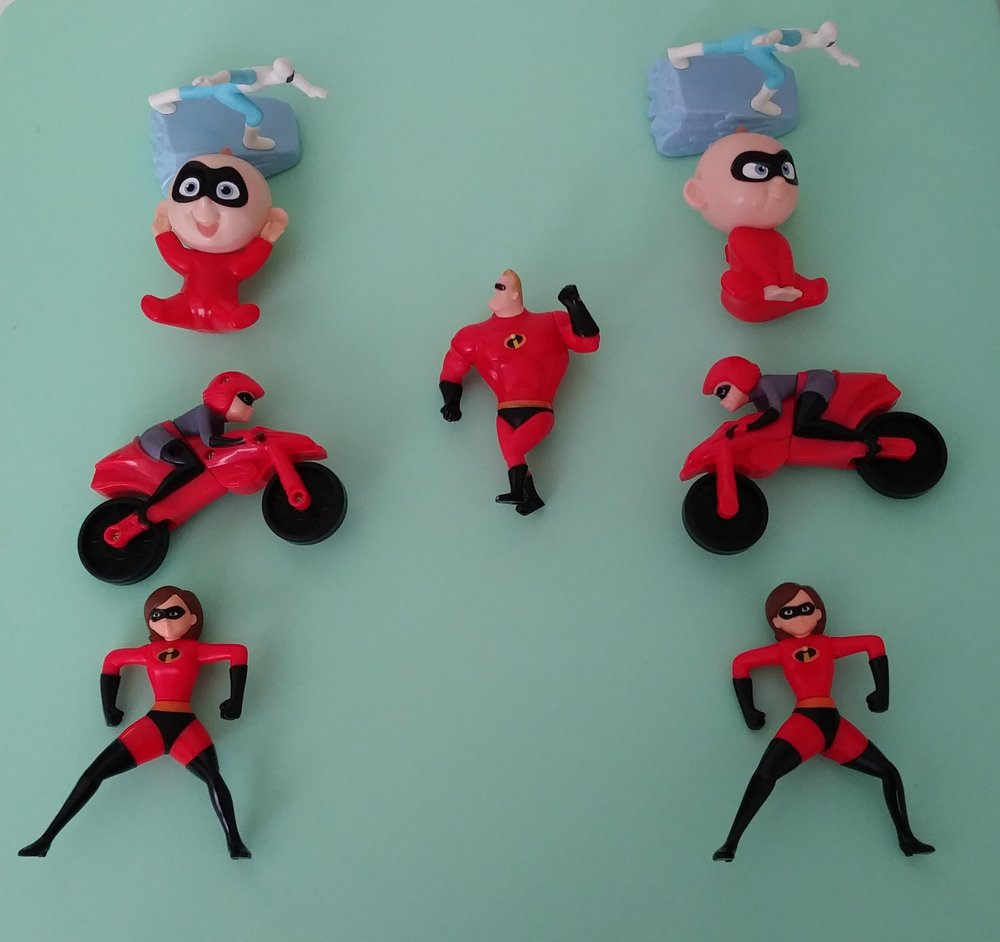
Our personal collection of Incredibles 2 action figures pulled out of Happy Meals. Missing from this pic are another Mr. Incredible, Dash, Violet, and Edna. Seriously. My kids love those red boxes… sometimes they even eat the actual Happy Meal. Geez…this is $40 in action figures. Now, I know how my parents felt…
Coincidentally, July 27th is also the day Dwayne Johnson’s new movie, Skyscraper hits theatres in China, pushing past the traditional Hollywood Blackout in which Chinese theatres only show domestic films during the summer months.
My family’s summer blockbuster is Incredibles 2. I’m also thinking my toddler – who is also an action junkie – will enjoy Antman and the Wasp, which looks promising. We’ll see.
As of this writing, Incredibles 2 already has $500 billion in global ticket sales, driven in part by smart (and pervasive) marketing like these cross-promoted sponsored posts from influencer and Disney Partner, Brittany @clumpsofmascara.
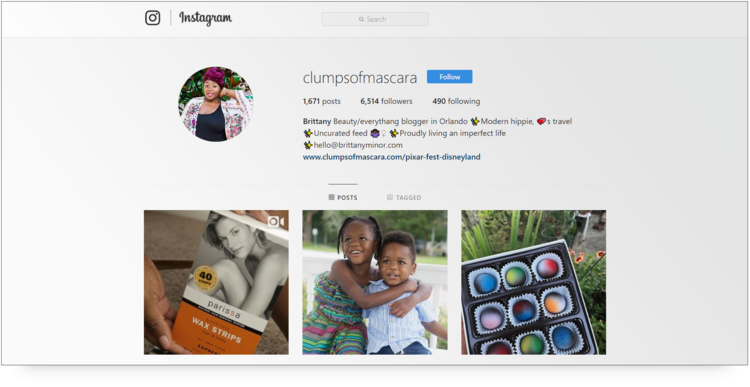
This Instagram post of tech-savvy, super hero clothing designer Edna outfitting her, is both clever and funny.
“NO CAPES!”
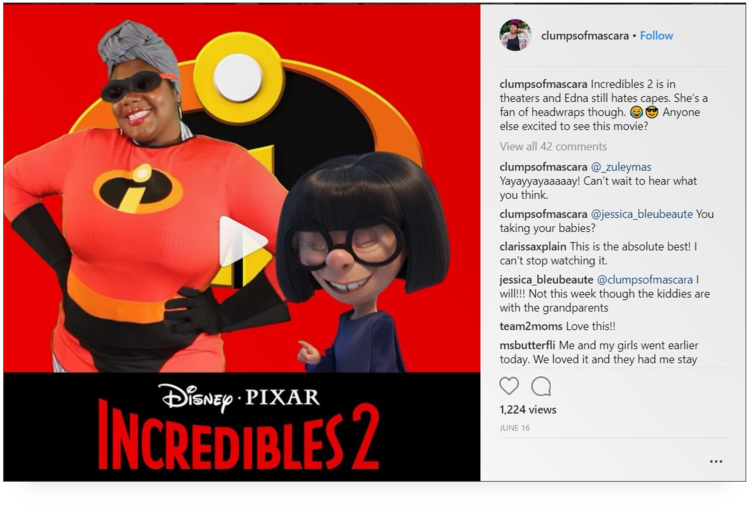
The video was cute and funny. I watched it twice in about 1 minute, then immediately followed @clumpsofmascara before moving on to check out her other platforms.
Here’s her growing YouTube channel, Clumps of Mascara, which currently has 11K followers.
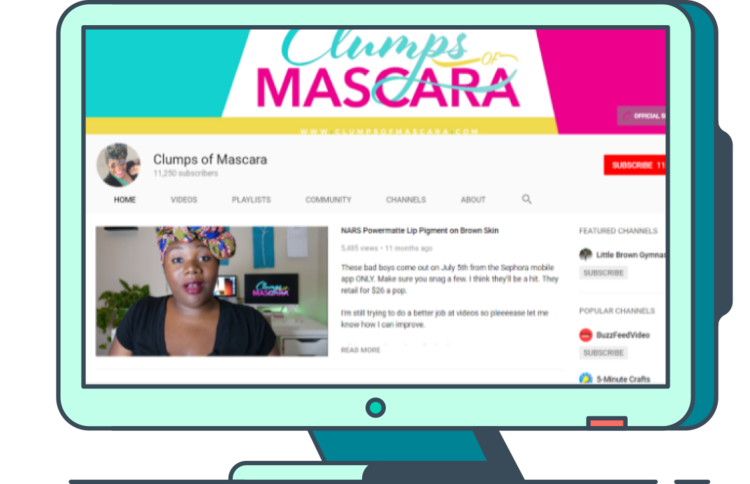
She cross-promoted Incredibles 2 on her Pinterest account, which has 14K followers…
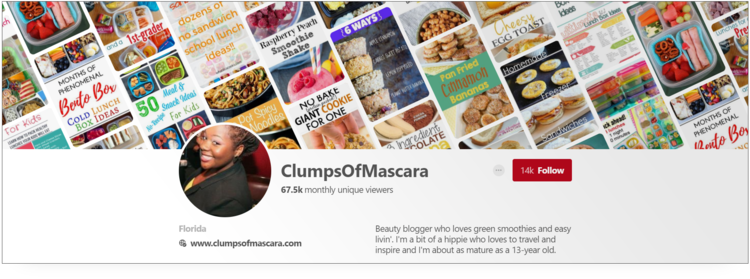
…. By noting that her husband looks a lot like Frozone. (He does, doesn’t he?)
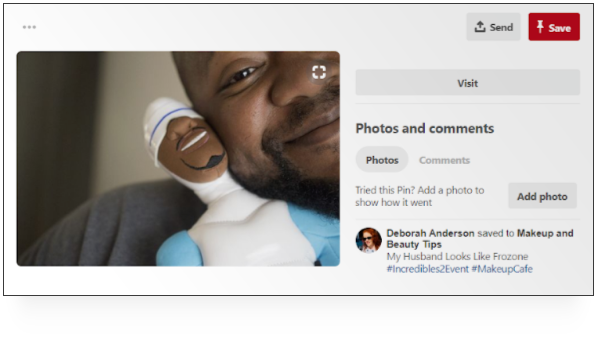
And again she promoted the film on her Twitter page, which has 11.8K followers.
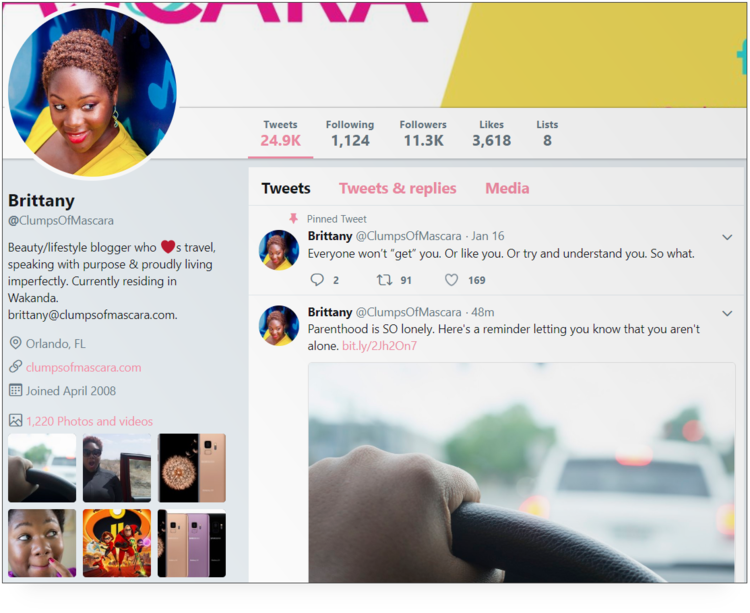
OPPORTUNITY: THE KIDS ARE HOME
The kids are home from school. From the tiniest Generation Alpha baby to college upperclassmen who are pushing the outer limits of Generation Z, the kids are home. When the kids aren’t obsessed with balancing school work and extra curricular activities, with their physical and virtual lives (huge responsibility, as most brands can attest), it leaves room for you to get in there and see what they’re talking about and how you can help.
Born between approximately 1997 and 2010 (some estimates extend that period to 2016). The members of Generation Z make up a quarter of the US population. By 2020, Gen Z could account for up to 40 percent of all consumers, according to Fast Company. Most of them are still young enough to get an allowance, the sum total of which comes to about $44 billion a year.
The oldest Gen Alphas are only in the second grade by now, but 81 percent of parents say their Gen Alpha kids either watch videos or play games on electronic devices every single day. Gen Z and their Gen Alpha younger siblings have some sway over how their Millennial and Gen X parents spend the $600 billion they control, chiming in on everything from breakfast foods to which family homes to buy.
That Time we Saw @ChytheGreatest Out Shopping
Case in Point: I’m searching for a dance studio for my daughter, who studies modern dance. Of course, by “searching”, I just mean it’s on my to do list and I keep remembering it’s there. Recently, my daughter and I were out grocery shopping when she gasped, took a step back, and whispered, “Oh, my God. That’s Chy the Greatest (@ChytheGreatest).”
A tall, lean teenager with fuchsia hair was in the store, standing not far from us.
“Ok. I’ll introduce you,” I said.
No. I don’t know Chy the Greatest, but I do know a scared daughter when I see one, and I was going to bridge the gap. I grabbed my daughter’s hand. She twisted and turned, and begged me not to introduce her. Then she got loose from my grasp and she disappeared, leaving me talking to Chy by myself.
#Shrug
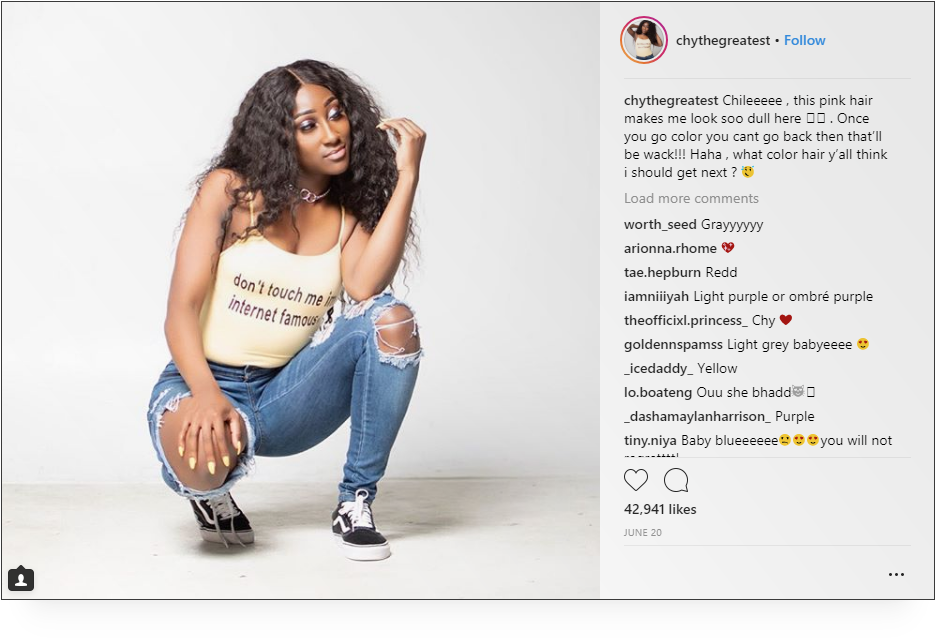
Here’s the point I’m making: Somewhere in my interaction with my daughter, I found out Chy the Greatest has more than a million followers across social, lives in our old neighborhood, and she is a dancer – a good one.
My daughter takes dance very seriously, so I trust her judgment on who’s a good dancer. I also found out where the Instagram mega influencer attends dance school.
Great. Problem solved. I can check finding a dance studio off my To Do list.
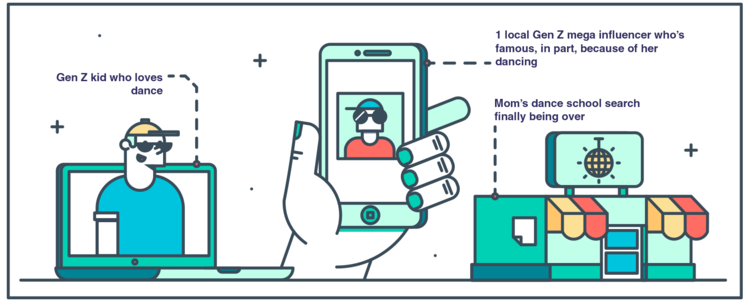
Coincidentally, I noticed several people trailing not far behind her as she walked through the store, including my daughter.
OPPORTUNITY: SUMMER BEAUTY PRODUCTS
Summer beauty products are a big deal. Beyond the mosquito repellent and the SPF 50 sunblock, most consumers who use beauty products know there’s a big difference between what you put on your skin during the summer verses what you wear during the winter.
In a survey of English-speaking, UK-based women, 15 percent of respondents named specific skincare or body care products they consider a requirement for their summer beauty regimen. Another 11 percent identified eye makeup specifically as the thing they could not and would not forego during the summer months. Only eight percent of respondents didn’t have favorite products that they considered summer beauty must-haves. Just eight percent.
Popular beauty vloggers such as Judy Travis (on Instagram @itsjudytime), Audrie Storme (on Instagram @audriestorme) and “Over 40 Beauty” blogger Stephaniemarie.7 (on Instagram @stephaniemarie.7) have joined the thousands of visual creators, makeup artists, and beauty bloggers who have posts and videos specifically geared toward summer beauty products.
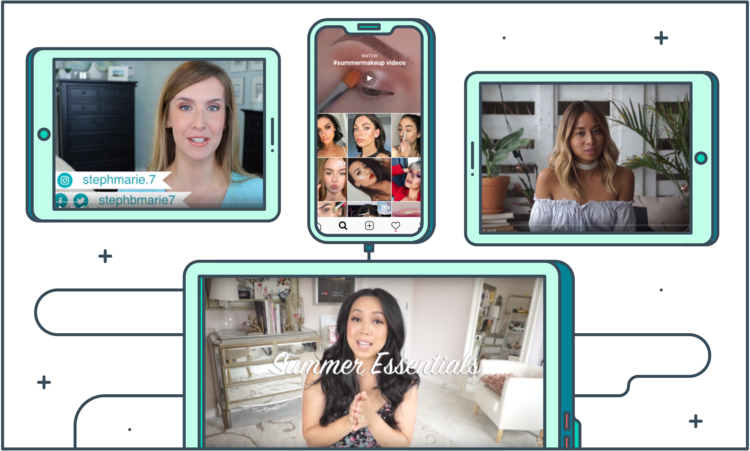
Another group of beauty products fall into the category of what Vogue refers to as athleisure beauty products. They include products like mattifying moisturizers, melt-proof eyeliner, makeup setters, and other beauty products that you can wear during your workout like “Gym Makeup Fail” video from Huda Kattan that she posted to IGTV a day or two after it launched at the end of June. You can see that in our post on IGTV here.
OPPORTUNITY: EXPERIENCES
Experiences and travel are huge during the summer months. Last years, 80 percent of Americans were planning a road trip, even if they weren’t planning an official vacation. If you’re gonna go, summertime is the time to do it. Whatever “it” may be.
I’m just going to pull a few stats from this holiday post on selling travel experiences that we did last year on U.S. travel trends:
Families still travel together. In fact, more than one-third of Americans planned a family vacation for 2017, according to AAA. And 79 percent of them were planning road trips by car. Where were they going?
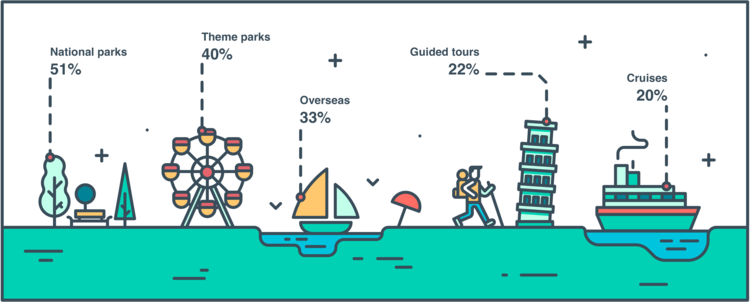
Multi-generational trips have seen an unprecedented increase in popularity over the last few years. Adult children are creating experiences as a way to show appreciation to their parents and grandparents. Children are getting the chance to spend time with their extended family, and possibly the rare opportunity to see mom and dad in a more playful, relatable way.
People are looking for the thrill, the excitement, and the fantasy theme parks deliver. And let’s face it, visiting a place like Universal Studios, Legoland, one of the Disney Attractions, or even a great local carnival makes for great stories and fantastic social media fodder.
The top 10 amusement park chains in the world attract nearly a half billion visitors a year. Walt Disney Attractions get 150 million visitors annually and generate $16.16 billion. Thirty percent of U.S. adults consider family-friendliness to be a non-negotiable trait of a vacation destination.
For Millennials, experiences often trump consumer goods when it comes time to spend money. According to the National Retail Federation’s Spring Consumer View, 40 percent of Millennial parents are more likely to pay a premium for experiences, rather than collecting stuff. Forty-four percent of Millennial parents bring their children along on vacation with them, and forty-three percent of Millennials would prefer to rent or lease an item like clothes, jewelry or cars over paying to own it.
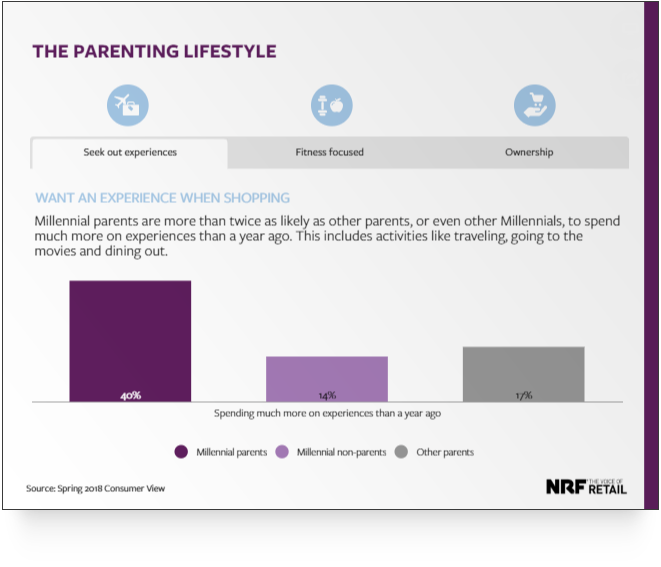
This shift in parental priorities has made a space for companies like Winnie, an online community that helps parents find family-friendly events and activities and Baby2Family, an online community that helps parents connect and share photos in a closed community, and recommends products based on user reviews
Babierge and Babies Getaway allow parents to rent high-quality baby equipment for home and travel. So, the problem of constantly upgrading baby gear, and the challenge of transporting all the necessary baby equipment when you go on vacation are effectively solved.
Of course, there are some things you can do at any time that just seem to be better when it’s warm. Americans now spend $52.8 billion a year eating out at bars and restaurants, and $52.5 billion on groceries. Full-service restaurants have their busiest times from July to August.
Another segment of the food service industry that performs best during the warmer months are food trucks. In 2016, there were nearly 5,000 food trucks in the U.S., employing about 14,000 people. While they are a staple in college towns and cities with warmer climates, most people will see even more food trucks (we have carnival food trucks that pop up here) during the warmer months.
It’s not surprising that California has the highest share of food trucks, OR that Millennials are the biggest eaters when it comes to food trucks. Fifty-four percent of diners between the ages of 35 – 44 are likely to buy a meal at a food truck. While far fewer older Gen Xers and Boomers (30 percent) were likely to to patronize food trucks.
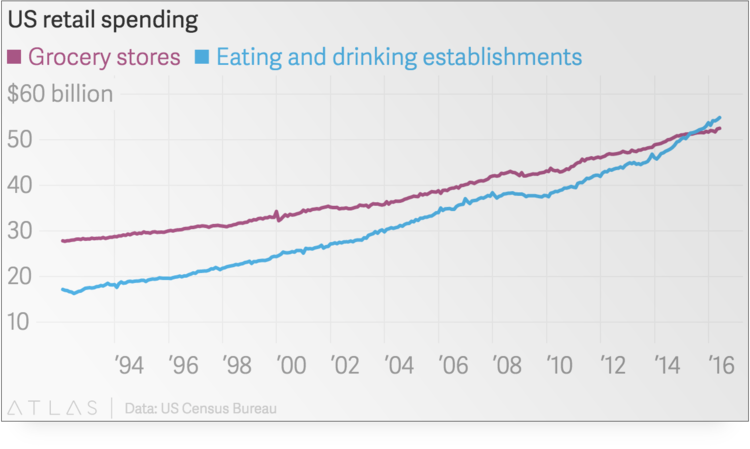
OPPORTUNITY: B2B
The final opportunity I want to mention is B2B opportunities. The summertime slowdown that enables CEOS and other stakeholders to go on vacation is also one of the most popular times for businesses to do a little retooling, specifically in regard to their digital footprint.
Your 9-Step Summer Marketing Plan
Now I’ve run down a list of potentially-lucrative opportunities when people are spending more money, let’s get right to your summer-fall influencer marketing plan.
#1 FIGURE OUT YOUR GOAL
Influencer marketing campaigns have specific goals, and typically each campaign is designed to produce at least two of the following:
- Brand awareness
- Sales growth
- Product placement
- Boost in follower count
- Product reviews
- User-generated content
- App downloads
- Video views
- Website traffic
- SEO boosts
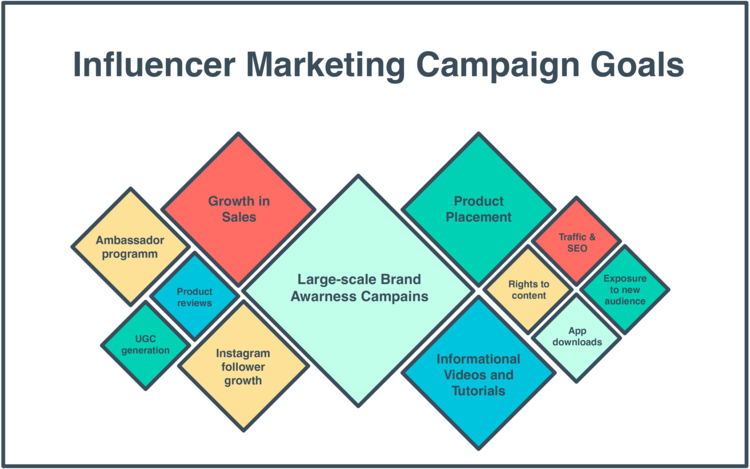
One reason so many companies find it hard to measure ROI with influencer marketing is because they don’t do the proper planning at the onset. By identifying the goals you want to accomplish before you ever start building the campaign, you know what to measure during, and at the close of, your campaign.
#2 DEFINE YOUR TIMELINE
Do you know a well-planned influencer campaign takes anywhere from 10 to 16 weeks to get going? Consider this post your laundry list of the things to do before, during and after your campaign.
#3 ALLOCATE A SOLID BUDGET
Your goals, timeline and the resources you allocate to accomplish your goals within that time have to work together. Those three are also THE KEY FACTORS in determining what strategies will work best during your campaign.
#4 DEVELOP YOUR CAMPAIGN STRATEGY
I know. You may have thought the strategy part happens AFTER you hire influencers. After all, isn’t that what they’re there for?
That’s a negative, Hoss.
Your campaign strategy is the time when you determine:
- Your message
- The platforms you need to use
- Which types of influencers you think are best-suited to deliver your message, and
- The actions you want your audience to take with each campaign
#5 RESEARCH AND SELECT INFLUENCERS
If there’s any one step that brands seem to have the most difficulty completing it’s this one, and you’ll see why as we dissect this step.
Selecting an influencer is easy. Researching an influencer to find one who can make your campaign a success is the tough part.
You’re probably aware you need to verify more than just follower numbers, blog traffic, and engagement numbers. So, what are those other important traits – the minimum traits you need to assess – before partnering with an influencer? The Shelf platform allows brands to use 30 targeting signals during the influencer selection process.
I recently wrote a detailed post on evaluating influencers for Social Media Today that you can find here. In the post, I discuss the five metrics you can use to evaluate influencers . These are:
- Organic follower growth – To ensure followers are real, engaged and offer the potential for you to garner future sales
- Content on all social platforms – To determine the verticals in which an influencer actually wields influence
- Audience demographics – To figure out where your two audiences overlap and market specifically to those people
- Brand affinity – To understand where your influencer and his / her followers actually show
- Product analysis – To get a better idea of how much they spend when they shop
Sentiment
One more signal I’d add to that list is sentiment.
Influencer sentiment reflects the influencer’s attitude toward different things, but in particular the vertical in which he or she is most active and influential.
Consider two mommy bloggers I follow whose popular Instagram accounts are made up largely of mom stuff.
The first blog is MommyWeek.com, authored by Atlanta mommy blogger Ashley, an award-winning mom blogger and owner of the @mommyweek Instagram account.
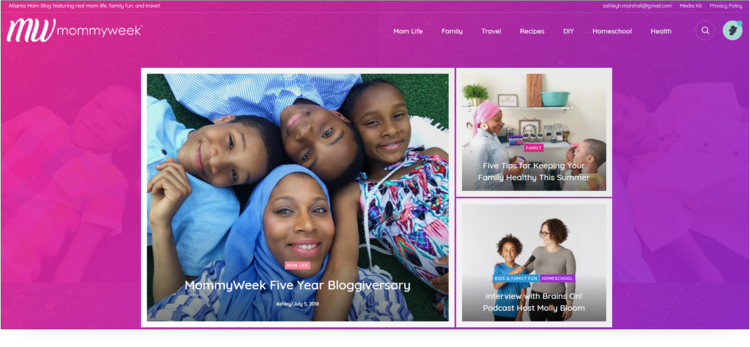
On Instagram, Miss Ashley’s content (that’s what I’d call her down here in Atlanta – it would sound weird to just call her Ashley out of nowhere) focuses on homelife, homeschooling (roadschooling), self-care, beauty and work/life/family balance, and includes sponsored content.

Her Instagram feed is filled with rows and rows of bright, pretty pictures of the Mom, Dad and the Kids in different scenarios at home and around Atlanta.

The flip side is I LOVE Sammiches and Psych Meds (Instagram at @sammichespsychmeds). The Instagram feed is filled with memes, quote cards, and truths about motherhood – many of which no mom really wants to admit out loud. The content @sammichespsychmeds is curated content – it’s an aggregate of mom-related posts from all over the web, and the blog has multiple contributors.

Sammiches and Psych Meds appeals to moms like me who can laugh at clever things, even if it’s at the expense of my own Insta-perfect image. Like @Mommyweek, the Instagram posts on @SammichesPsychMeds get great engagement, too.
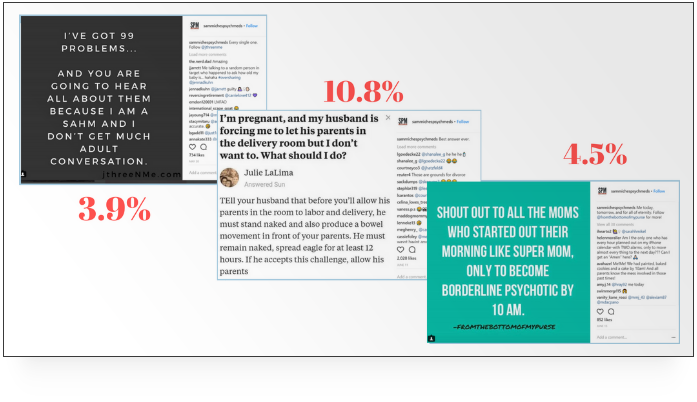
I think this content is hilarious and spot-on. I happen to be a mommy blogger who doesn’t love traditional mommy blogs. I’d take this feed of smarty pants mom stuff over thousands of others any day.
Most campaigns will require more than one influencer doing one post. An old stats says people only see 30 percent of what goes through their feed. After the last few adjustments to news feed algorithms of Facebook and Instagram, and the overall growth of social media, you can bet the average social media users sees a lot less than 30 percent of the content that goes through their feed.
Audience sentiment reflects the way in which followers respond to the content being posted, both with actions and the types of comments being left. A great example of this can be found in Julie Wampler’s content. Julie Wampler (on Instagram @tablefortwoblog) authors the Table for Two Blog and has a healthy following of about 17.5K people.
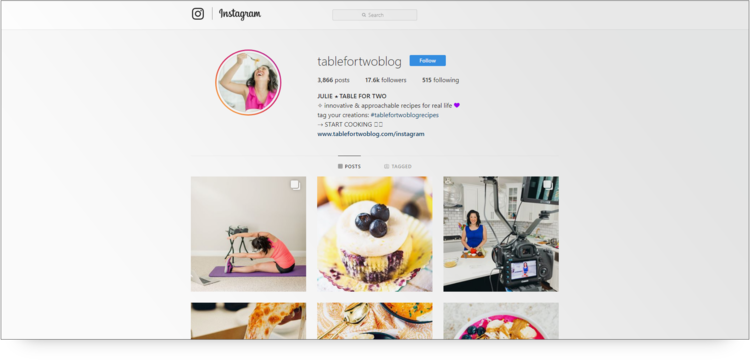
A cursory review of her posts and engagement reveasl something powerful – her followers genuinely like her.
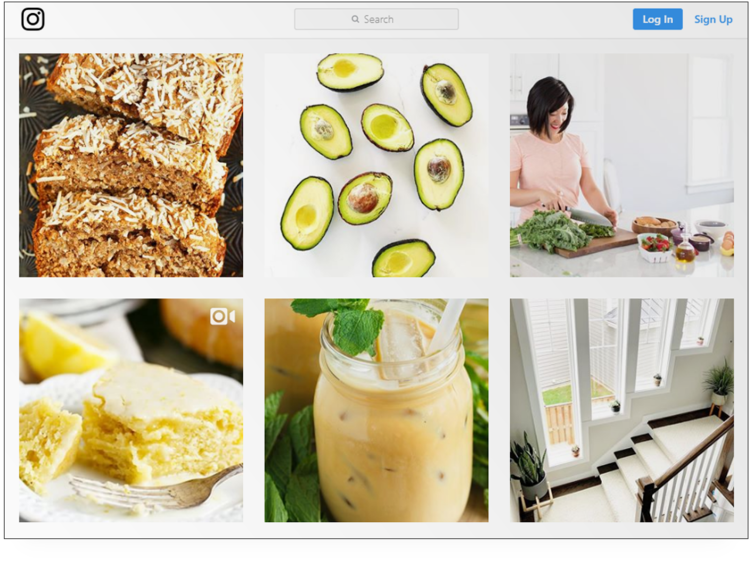
Just a little background – Wampler’s blog is one-part lifestyle and one-part food blog. That’s normal. A few years ago, a trend emerged that pushed a lot of niche influencers to create lifestyle content as well. We wrote about the rise of the lifestyle blogger when the trend first became a thing in this article.
Wampler’s Instagram feed is full of AMAZING food photography, like this post that generated nearly 400 Likes (more than two percent engagement).

The recipe for these dirty chai brownies can be found on the blog, but notice, if you will, the comments for the post. Each comment gets a response from @tablefortwo. There are two brands mentioned – #mywilliamssonoma and @ceremonycoffee. Not only that, but some of her followers have tagged people in their own network.
The post below from Wampler isn’t about food at all, but about a skincare product a friend recommended to her to treat eczema and other skin issues. It’s not a sponsored post. As of this writing, the post has garnered 465 Likes.

Again, notice the comments – there are 100 of them. Lots of her followers tagged other people in the comments who they thought should know about the product as well. And again, Wampler consistently responded to the comments she received.
#6 GET A SIGNED CONTRACT
Every partnership needs a clearly-defined list of expectations, whether that list is “love, honor and cherish” or “produce one 600-word blog post and one 90-second video”. Your contract serves to protect your company and your influencers from losses that result from misunderstandings or non-compliance.
So, you want to make sure you have a mutually-beneficial written agreement in place detailing:
- The purpose of the campaign
- The goals of the campaign
- The timeline of the campaign
- The type of content to be produced
- The quantity of the content to be produced
- Flexibility in editing, optimizing, and tweaking content
- The ownership and future use of the content created
- Payment amounts and dates
And after that’s done, verify with your influencers one final time the content they are creating for your campaign.
#7 SHIP PRODUCTS
Ship products well ahead of when the campaign should actually go live to give your influencers enough time to receive, test, and rave about your products in whatever way they have agreed to do so.
#8 LAUNCH
With everything else in place, you can roll out your campaign with the confidence that you’ve done everything you can to ensure your summer influencer marketing campaign is properly structured, and tailor-made to help you reach your business goals. That’s the whole point o influencer marketing, after all.
#9 CONTINUALLY OPTIMIZE
You give your summer marketing campaign the greatest chance of success when you monitor and actively do what you can to optimize the campaign while it’s running.
Effective marketing is not now, nor has it ever been a set-it-and-forget-it tool. If we could set and forget marketing campaigns, fast food joints would have stopped making new ads decades ago.
And fries. They wouldn’t keep changing their fries.
At The Shelf, we run what we like to call “Always On” campaigns. We monitor influencer campaigns knowing that as they run and the audience begins to engage, we will see ways to make them even more effective, more successful.
By monitoring campaigns, you will begin to see what people are responding to and how you can tweak your campaigns to get greater reach, more followers, and better engagement.
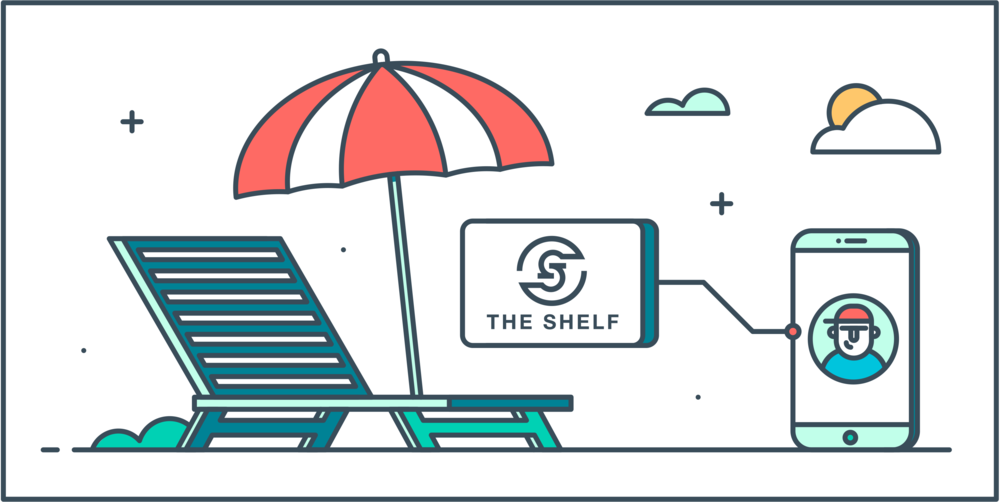
The Wrap-Up
There’s still time to launch a FANTASTIC summer / fall influencer marketing campaign. Running a successful influencer campaign is about gathering data and creating a plan for the best ways to leverage the data you have to get in front of your target audience. You can re-work this basic strategy so it better suits your business goals.
Of course, if you need help with your summer influencer campaign, we do influencer marketing better than anyone else.



